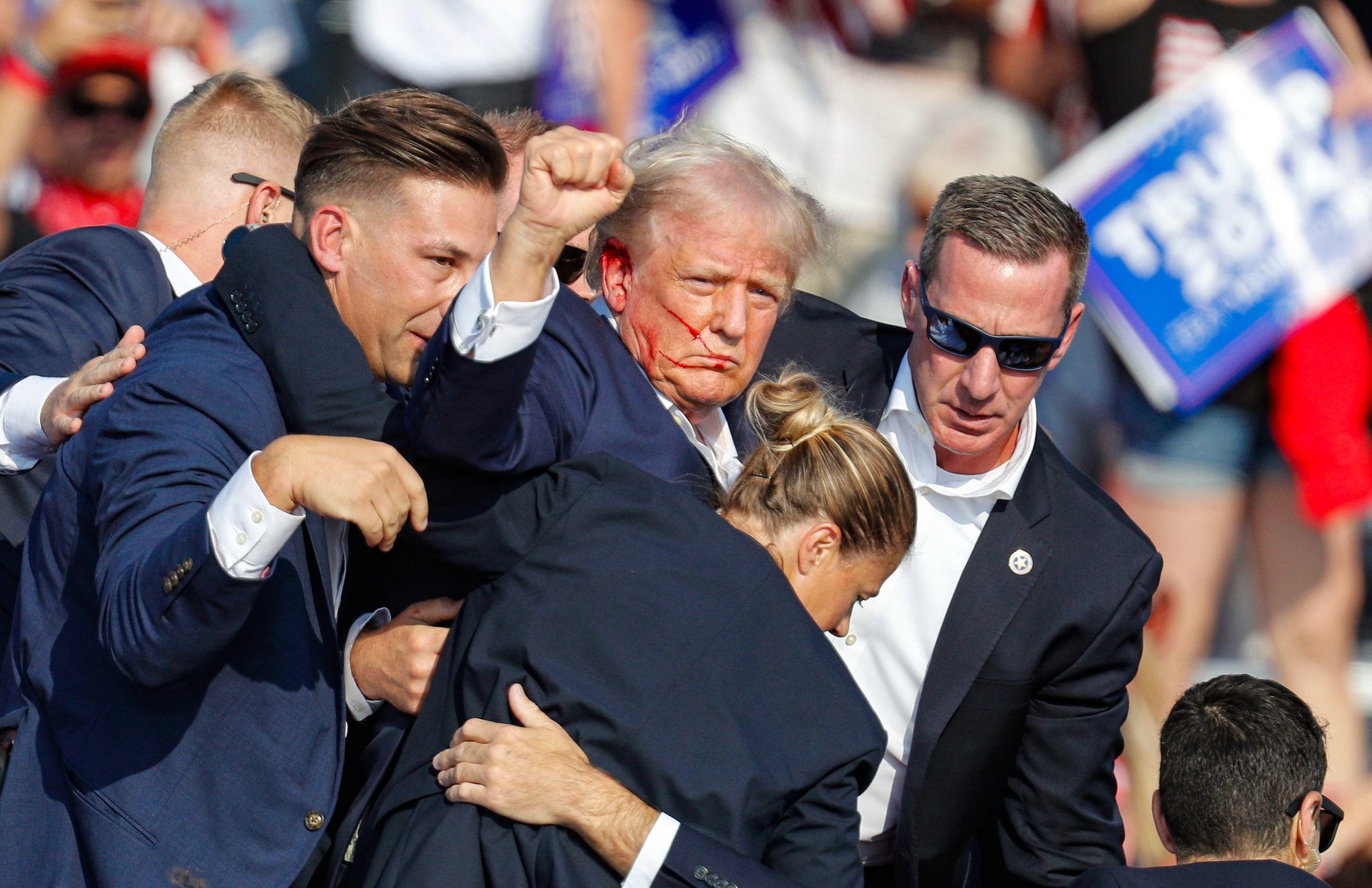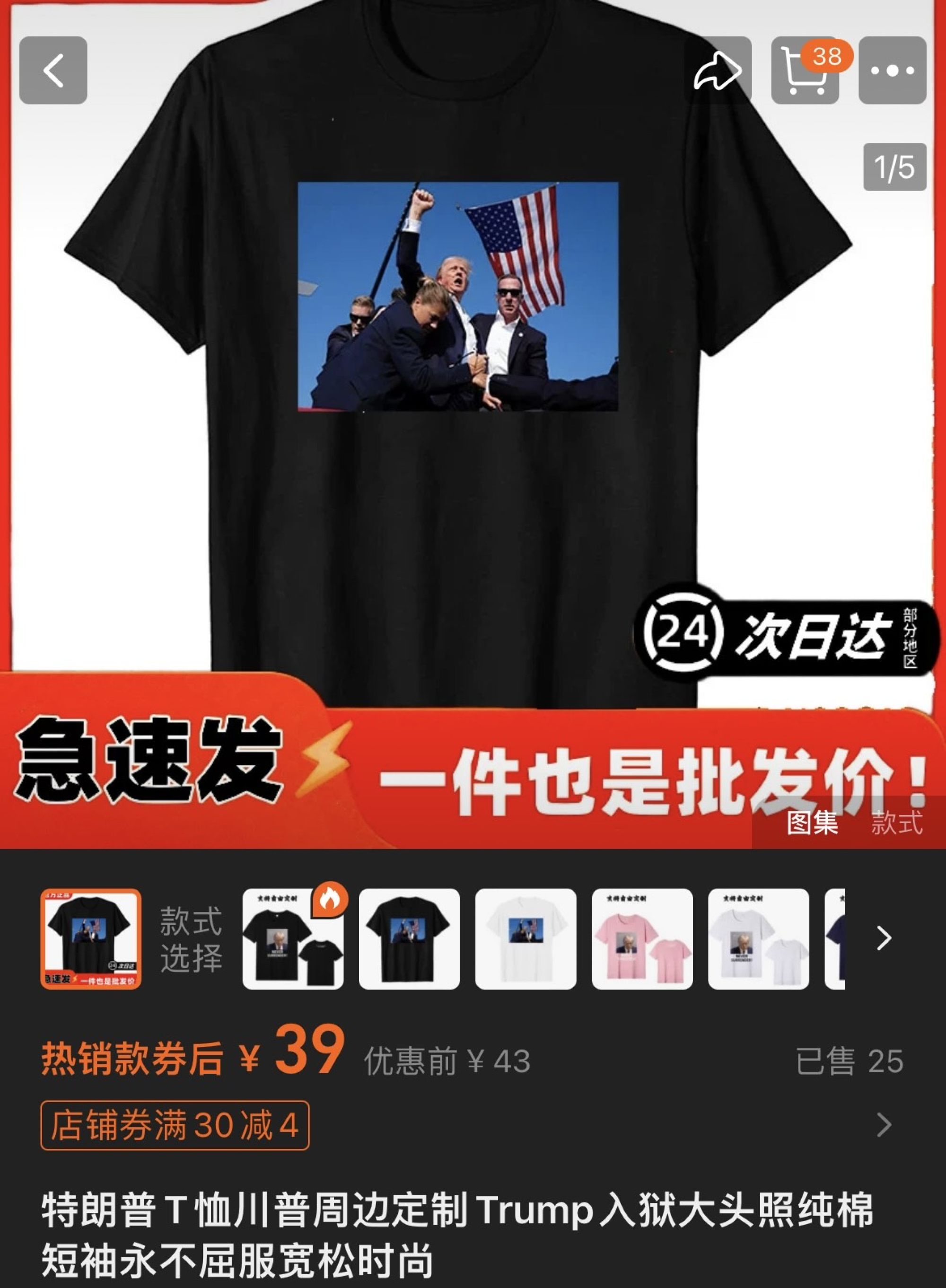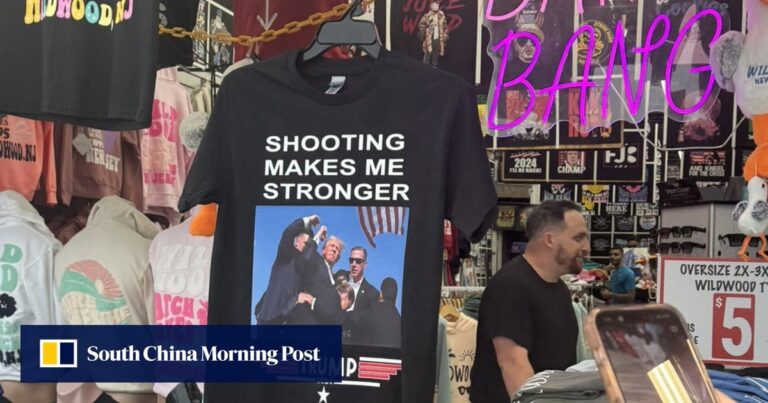The first batch went on sale on Taobao, a popular Chinese e-commerce platform, at 8:40pm, before most governments around the world rushed to act.
That is China’s speed.
By breakfast time in China, Li Jingwei, a 25-year-old Taobao saleswoman, was stocking online shelves with T-shirts.
“As soon as we saw the news about the shooting, we put the T-shirts on Taobao without them even being printed, and within three hours we had more than 2,000 orders from both China and the US,” she said.
Taobao is owned by Alibaba, which also owns the South China Morning Post.

At Li’s factory in northern China’s Hebei province, creating a new product simply requires downloading an image and pressing print, taking an average of one minute to complete a T-shirt.
“I only made Trump memorabilia because he has a high chance of winning this year’s US presidential election and he is popular among Chinese netizens,” Li said.
According to Guangdong, there is very strong demand in the US market for custom T-shirts with “election and rally themes.”–Allen Yao, co-founder of Xinflying Digital Printing Production;
Earlier this year, Yao opened a fully automated factory in California with production capacity of about 3,000 T-shirts per day, which is set to increase to a total of 8,000 by next month.
“The T-shirts are imported from Vietnam and stored in a warehouse in the United States, and the production speed is very fast,” Yao said.
The digital press can print 27 square meters (290 square feet) per hour, or about eight election-related T-shirts, which can be quickly put on store shelves and sold in California, he added.
“Demand is so high, we just can’t produce enough.”
The company plans to open a new factory on the US East Coast next year, increasing its daily capacity to 30,000 units.

According to data from DHgate, a Chinese cross-border e-commerce platform specializing in the U.S. market, trading volume of election-related souvenirs has increased by more than 40% each month since January, with month-on-month growth in March exceeding 110%.
In May, Shanghai media outlet Yicai reported, citing data from DHgate, that total trading volume of U.S. presidential election memorabilia in the first quarter increased by more than 90% compared to the same period last year.
For other manufacturers, the prospect of a Trump victory goes beyond T-shirts and souvenirs, with Chinese exporters starting to bring forward shipments out of fear of further tariffs.
This is partly reflected in June export data, which rose 8.6% year-on-year in US dollar terms, although the Producer Price Index and new export orders fell over the same period.
Sam Xiao, a Chinese household goods exporter, said his company in Texas had instructed its China headquarters to order and ship goods immediately to replenish warehouses before the end of the year.
“Many exporters are discussing the need to ship goods before the election to deal with possible knock-on changes that may come, such as higher tariffs and higher shipping costs,” he said.
Gao Zhendong, a Beijing-based supply chain expert who helps Chinese companies invest internationally, said China’s supply chain has already made adjustments over the past six to seven years, and export growth is unlikely to be significant as the Biden administration has largely continued the Trump-era tariff policies.
But a Trump victory would have an impact on supply chains.
“Most exporters feel that this unexpected event has significantly increased the chances of a Trump victory,” Gao said.
“If Trump wins, tariffs will be imposed on ‘New 3’ products.” [photovoltaics, lithium-ion batteries and new energy vehicles]The prices of steel and aluminum products will rise significantly.
“Furthermore, President Trump has consistently criticized Vietnam and Mexico as ‘re-export havens’ for Chinese products, suggesting that related supply chains in Vietnam and Mexico may also be adversely affected.”
But Chinese imports are unlikely to fall any further, Gao added.
“Trade volumes between China and the United States have declined significantly in recent years and have stabilized. There is limited scope to further reduce imports from China, as any attempt by the U.S. government to further reduce imports from China would be constrained by inflationary pressures in the United States.”

